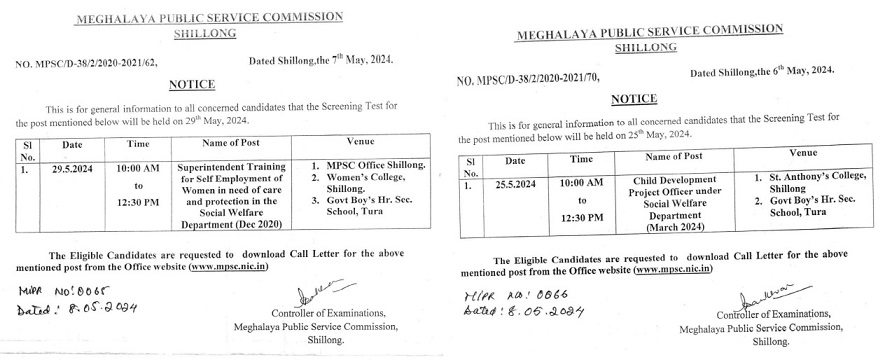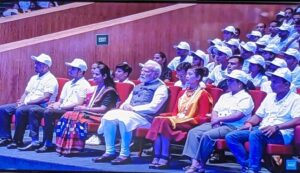Meghalaya government has agreed to increase the individual plot sizes as requested by the residents of the Sweepers’ Colony.
This was informed before the Meghalaya High Court during a hearing on the petitions filed by the Meghalaya government and the Harijan Panchayat Committee (HPC) here on Friday.
In its order, the bench comprising Chief Justice Sanjib Banerjee and Justice B Bhattacharjee expressed concern that “despite affording the parties considerable time for a negotiated settlement, no settlement has been forthcoming”.
It said the State had submitted that following the request by the relevant residents, the State has increased the extent of allocation and even the individual plot sizes.
It also said the State says that there has been no response from the residents. However, the residents claimed that the proposal upon increasing of the extent of allocation or the plot sizes has not been forwarded.
The bench was also informed that the residents had approached the Central government and the Central government is apparently looking into the request sympathetically.
Stating that the legal issue is rather simple, the bench said that the State purported to issue a notice to constitute a committee for the purpose of ascertaining whether the residents in this case duly occupied the land that was in their possession. It was such action of the State which was called into question by the residents by instituting proceedings under Article 226 of the Constitution.
Ultimately, the relevant writ petition was disposed of upon the writ court perceiving that there were disputed questions of facts which could not be conveniently addressed in summary proceedings conducted
on affidavit evidence.
The writ court left the parties free to pursue their remedies before any appropriate civil forum. However, there was a twist in the tail of the order impugned dated February 15, 2019.
Paragraph 7 of the relevant order, which is the portion by which the State is aggrieved and in appeal, provides: “7. Therefore, I direct the government and all the other agencies not to disturb the petitioners in any manner and if at all they want to evict or remove them, they are to approach the Civil Court and the Civil Court will pass a proper judgment after giving equal opportunity to both the parties and decide the title in accordance with law. ”
“The residents have preferred an appeal from the same order. It does not appear that the residents can be regarded as persons aggrieved for the appeal to be maintainable since no prejudice has been occasioned to the residents by the order impugned and the writ court merely exercised a discretion available to it to not enter into disputed questions of fact since petitions under Article 226 of the Constitution are dealt with summarily and without recording evidence,” the bench said.
“However, the residents maintain that it would be evident from government records that the primary assertion of the State that the residents appeared to be encroachers is fallacious and, to such extent,
they suggest that the writ petition should have been entertained and adjudicated on merits,” it added.
Meanwhile, the bench directed the matter will appear again on October 3, since the matter has been lingering for a considerable period of time and a further adjournment is sought on behalf of the residents, for the appeals to be finally heard out.























+ There are no comments
Add yours